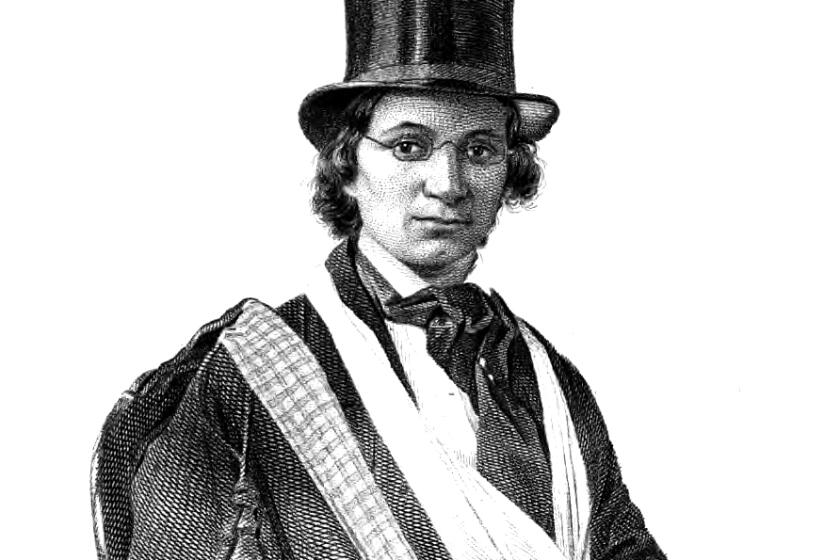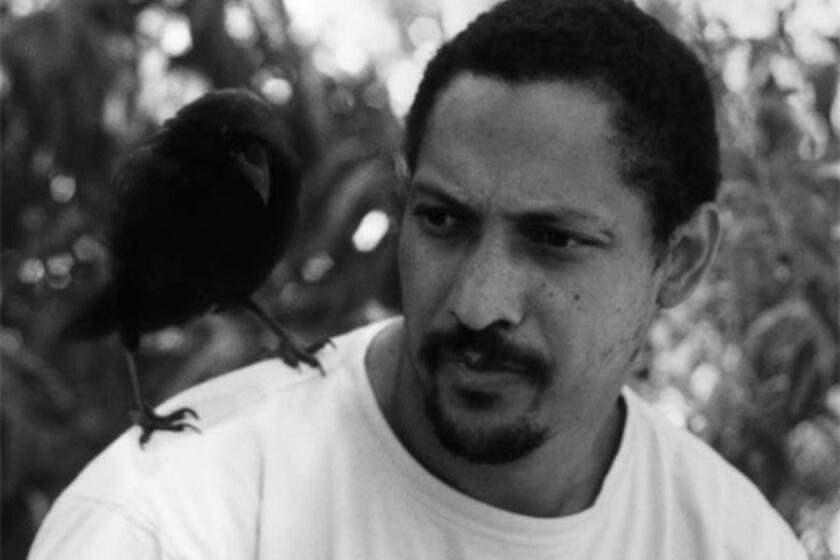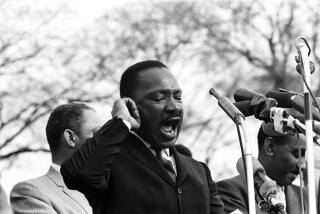The Reconstruction that wasn’t: A new book aims to bust post-Civil War myths

- Share via
Review
I Saw Death Coming: A History of Terror and Survival in the War Against Reconstruction
By Kidada E. Williams
Bloomsbury: 384 pages, $30
If you buy books linked on our site, The Times may earn a commission from Bookshop.org, whose fees support independent bookstores.
When Robert E. Lee surrendered to Ulysses S. Grant after the Battle of Appomattox Court House on April 9, 1865, the South’s defeat in the Civil War had been all but assured. But as author Kidada E. Williams reminds us in her shattering new book, “I Saw Death Coming,” another insidious shadow war was just beginning. For Black people in the South, the war’s end was merely a false dawn, with more horrors awaiting them.
In her powerful and deeply moving history of the Reconstruction era, Williams, an associate professor of history at Wayne State University, upends the narrative of the post-Civil War era as a redressing of past wrongs, with pockets of white resistance impeding new protections as enumerated in three newly drafted constitutional amendments. Instead, a kind of crypto-Confederacy emerged from the collective rage of a fallen white South that refused to cede an inch to those they had subjugated. Despite the 13th Amendment’s abolition of slavery, the liberation struggle remained a Sisyphean task, as many of the newly freed found no emancipation at all.
“To African Americans, freedom at the end of the Civil War wasn’t simply about being released from bondage,” Williams writes. “It also involved legal certification of Black People’s entitlement to access all the privileges of American freedom.” According to Williams, African Americans’ newly granted legal rights and protections only inflamed a rearguard of militant farmers who had other ideas — and were willing to expropriate by force all that had been legally granted to their former slaves. As Williams tells it, Reconstruction has become a national myth; the new frontier the federal government had ostensibly granted freed people in the immediate postwar era remained well out of sight.
In ‘Master Slave Husband Wife,’ Ilyon Woo follows a wife and husband who escaped by posing as a white man and his caretaker, then fought for abolition.
The members of this racist planter class would become marauding obstructionists, using fear and intimidation to roll back postbellum gains, scorching the earth now being carefully tended to by their former slaves. This irruption of violence dovetailed with the rise of the Ku Klux Klan, which began as a social club in Tennessee and then quickly metastasized into a band of white supremacist terrorists.

The new book’s power derives from its eye-level approach, as Williams homes in on several newly freed Black families while they struggle in the months after the war to establish footing on hostile ground, only to find every incremental gain met with violence, every small victory a prelude to further struggle. These freed people, Williams points out, were not just trying to earn a living. New communities had to be raised up from nothing, families made whole again. A new culture, in short, had to take root.
Williams tells the story of former slaves Abe and Eliza Lyons, who scraped to start anew until they found some measure of stability. Abe became a blacksmith; Eliza took in odd jobs. The couple moved into their first house. Then the “night riders” came. They waited until darkness gave them cover, then charged the Lyons’ home with lit torches held aloft. Eliza watched in horror as the men beat and murdered Abe; then she just ran. Williams writes that Eliza “spent the night in the woods, in her bedclothes, hiding with her girls by her side, wondering what had happened to her son,” who had disappeared during the attack. “Lying out” in the woods became a common survival tactic. Freed people were left with no sanctuary, not even the dwellings guaranteed them under the Constitution.
In his new novel, “The Trees,” Everett mixes wordplay, farce and horror to spin a comic, deeply serious revenge story out of the Emmett Till lynching.
Night riding raids became the cudgel by which the Klan and its co-conspirators terrorized former slaves, strip-mining their possessions, dignity and sense of place. Williams writes of an “existential crisis” among those who survived these attacks, trapped in an endless cycle of reprisals. For freed Black people, the ultimatum was stark: leave or die.
So where was the federal government? Williams cites the Freedmen’s Bureau, which Washington established in former Confederate states to provide legal protection and economic assistance. But its branches were located in cities, not the rural outposts where so many strikes took place. Without the eyes of the bureau on them, the night riders attacked with impunity. In the rural South it was every Black man, woman and child for themselves.
It was as if freed people were trapped in a labyrinth with the Minotaur awaiting them at every turn. Legal recourse was elusive. Murderers skipped trial without penalty or colluded with judges who were “vigilante sympathizers, if not perpetrators or abettors themselves.” African American voters were cowed into disenfranchisement; newly elected Black lawmakers were driven from office. Most crucially for Williams, freed people’s basic dignity had been strip-mined, their fragile psyches fractured. Not only were their lives at risk — the soul of an entire race was being dissolved.
The writer and Princeton scholar on “South to America,” her personal and historical tour of the region, and why so many liberals are wrong about it.
With scant documentation available from survivors, Williams has carefully sifted through census records and affidavits given to the Freedmen’s Bureau, which led her to testimonials from local Klan trials in the Southern states as well as more extensive 1872 congressional hearings in Washington. From these shards of evidence, Williams has given us an ugly widescreen view of the reign of terror that wracked the South — not during slavery or Jim Crow, but in the very thick of Reconstruction. “I Saw Death Coming” bears witness to a dark malignancy in American history, one we have never fully excised.
Weingarten writes about books for the Wall Street Journal, the Globe and Mail and other publications.
More to Read
Sign up for our Book Club newsletter
Get the latest news, events and more from the Los Angeles Times Book Club, and help us get L.A. reading and talking.
You may occasionally receive promotional content from the Los Angeles Times.









